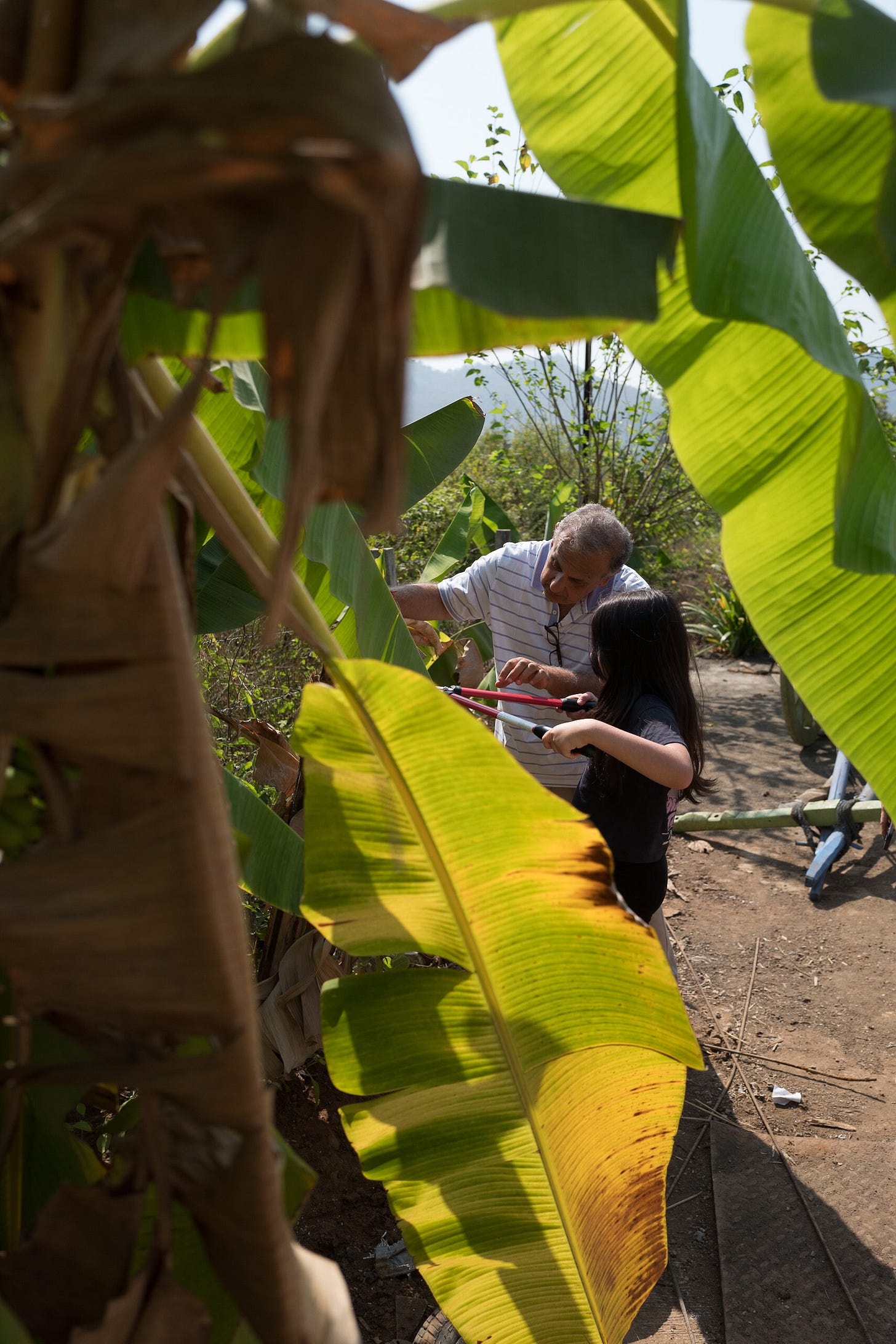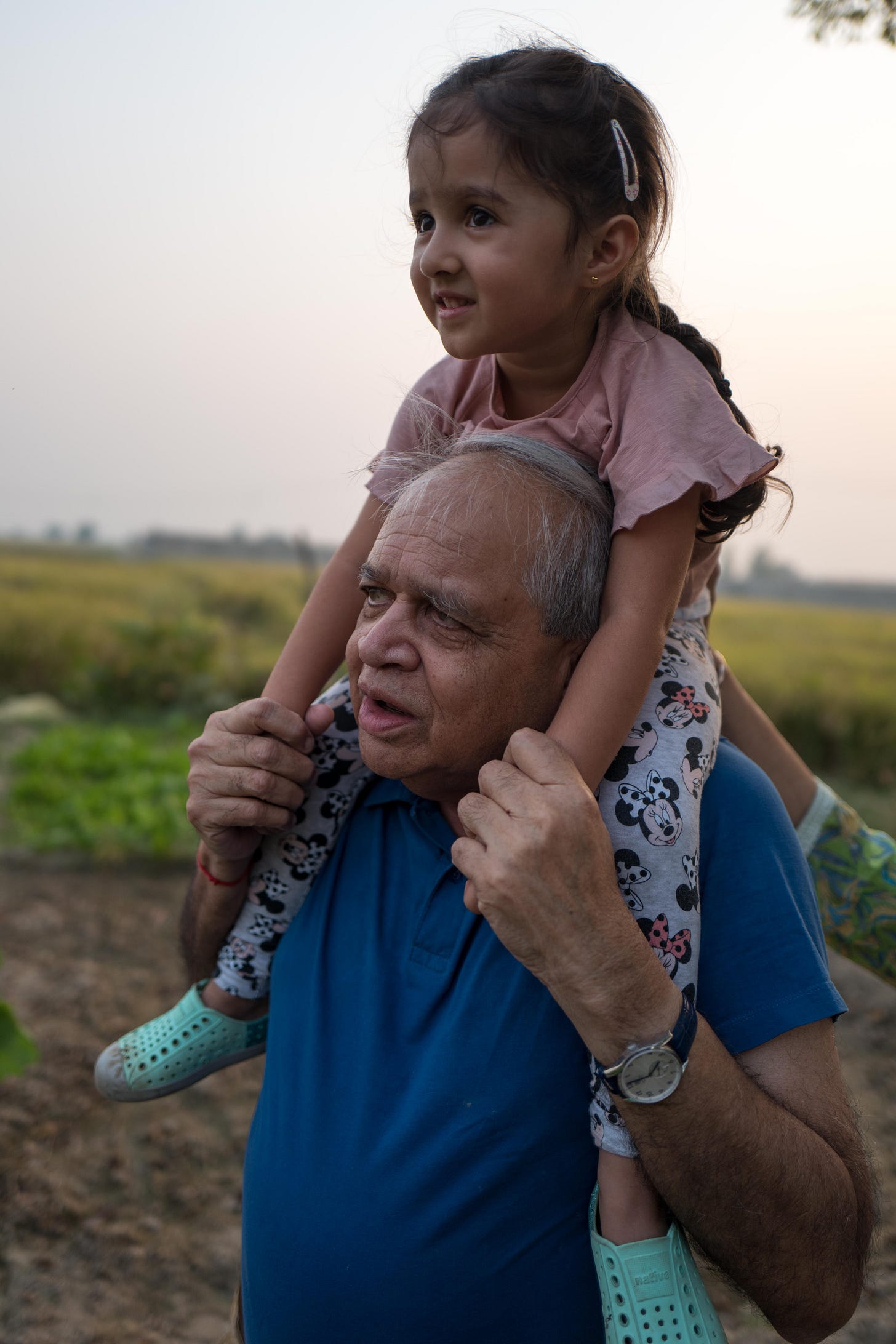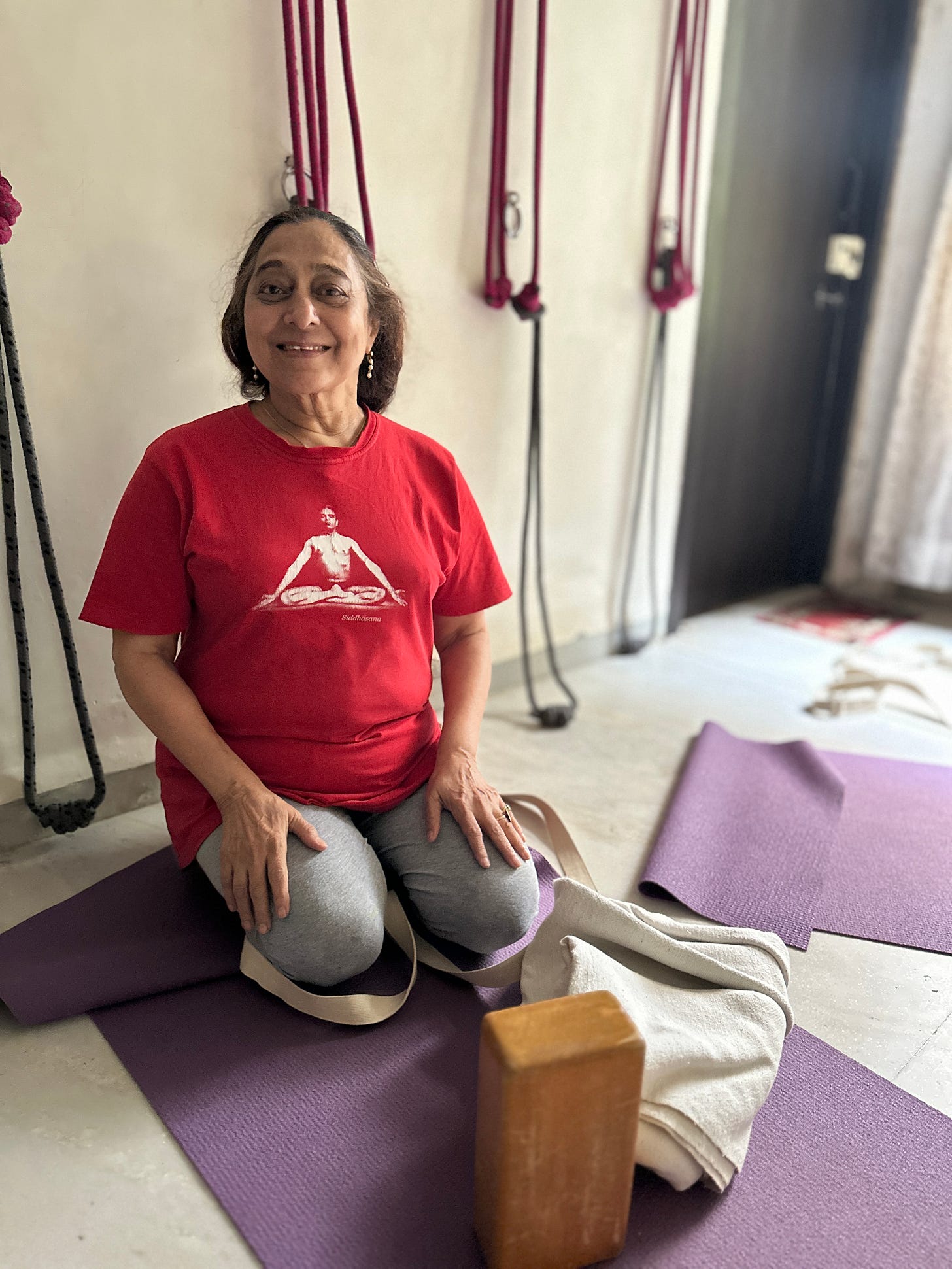Yet Untitled 044 - Continuity
As illustrated by those lost in space and by the zombie apocalypse
Dear Yet Untitler,
Welcome back to this lean, mean version of our weekly newsletter that skids and off-roads its way to you ever week. It’s gone from being a Friday dispatch to becoming Sunday-ish, and so far it’s never dropped a week. I deeply appreciate the continuity of this enterprise, the momentum of this flywheel which creates a unique kind of vacuum inside my chest towards the end of each week, forcing me to collate ideas with images, fight that worthy battle for coherence and ultimately hit the holy button of ‘publish’.
I’m grateful to be writing today. I’m grateful to continue.
That’s what this instalment is about. Continuity.
We visited Dr. Mehta’s farm this weekend, and he taught the girls how to prune the branches of his mulberry trees using a pair of gardening shears.
The girls love his farmhouse. You may remember the short film I made with them out there some months ago. I gush when I hear them say affirmative stuff about being out at the farm amid nature and animals, but what really makes me all warm and fuzzy is Dr. Mehta himself stepping into my dad’s shoes, doing more or less exactly what dad would have been doing had be still been alive.
It’s fair to say that I’m drawn to Dr. Mehta because of his love for tilling the earth, building a home looking out at green crops just as dad had. But I note that more than often, the verisimilitude goes vivid beyond simile. I mean, Dr Mehta stands exactly where dad would have stood, behind Aahana with those gardening shears. He helps her prune those low hanging branches just as Dad would have done. There’s a moment where things-happened, things-happening and things-that-could-have-happened feel like they exist simultaneously.
In that moment, I see Continuity before me rather than a gap.
I had written about gaps in my life in YU 031. It was a bittersweet essay where I had mainly channeled my sense of loss:
This time, I see another way to look at the same gaps, from the lens of Continuity. Here’s what I mean:
I lost my grandma around the time I started writing YU. Some of you YU veterans may remember her from our 4th instalment:
But, months after her death, she came back to me via my Yoga teacher. Mangalaji’s hands, when they gently press my forehead skin down towards my eyebrows to quietening my brain during an asana, I kid you not, I feel it’s my grandmother with her hands on my head. Mangala ji is a nurturing, loving human being, but there’s a lot about her that’s different from my grandmother. Yet, my life tells me that, in some way, Mangala ji’s touch is my grandmother’s. The synapses that relay her hands’ contact with my skin go straight to that part of my brain that houses every sense-memory of my grandmother.
I could very easily dismiss this stuff with a laugh-y ‘of-course-it-isn’t-so’. But I don’t. It’s a choice. And it has given me so much succour.
I believe I’m lucky. But sometimes I wonder whether I’m delusional. Which isn’t a good feeling.
So I examine it.
My basis for continuity (found in Sci Fi and Zombie Movies)
Books have been written and movies have been made about folks who have struggled with loss in different ways. As I write, I realise that I’ve been really moved by the books and films that have explored how we as humans have made it through the darkest of nights after seeing just a glimpse of…something.
To me, this ‘something’ is what I call Continuity. The implication that things carry on. Not just generic ‘thing’. Specific things - the life of a mother, a father, a daughter, a pet.
Interestingly, the examples that come to mind are Christopher Nolan’s ‘Intersteller’ and two Zombie narratives. What darker night could we evoke than endless space and the zombie apocalypse?
Remember the denouement from ‘Interstellar’ when Matthew McConaughey’s character manages to access another self in another time and in the tiniest way give his daughter a glimmer of hope: that something exists beyond the the confines of their preset tragedy of separation?
Remember the denouement of Will Smith’s ‘I am Legend’ when Smith’s character, grieving the loss of a wife and child, is flummoxed by the occurrence (recurrence?) of a butterfly in a way that screams at him to believe that his wife’s life is still engaging with him long after he’s lost her?
And if you haven’t yet started watching HBO’s ‘The Last of Us’, the whole story rests on one man’s struggle to acknowledge a second chance standing before him; in the form of a young girl remiscent of the daughter he lost. I haven’t reached the series’ end yet, but the episodes I’ve seen so far point to a denouement where the protagonist’s (a fantastic Perdo Pascale) redemption lies in his acceptance of Continuity staring him in the face.
To me, the fact that ‘Interstellar’ comes at this understanding of life as Continuous (toppling death from its high-handed prominence) from a place of science helps me when I fear I’m delusional.
And, what’s with Zombie stories tapping in to this exploration recurringly? Perhaps they illustrate best those scenarios when our fragile lives look desperately for something to hold onto when everything is lost. Desperation can be a great motivator to look closely. Ultimate desperation may reveal the ultimate truth?
Ikeda and Frankl’s point of view
Daisaku Ikeda says - Hope is a Decision.
Victor Frankl talks about Man’s search for Meaning.
After thinking through this instalment, I believe that neither the decision entailed by Ikeda, nor the search implied by Frankl is arbitrary.
I have Dr. Mehta and Mangalaji. Will Smith and Pedro Pascale have their Zombies. Matthew McConaughey has a singularity inside a black hole. Each of us, in our own ways, are pointed in a direction where we all - in the emptiness of space, the terror of the night or the loneliness of loss - becomes just a little bit braver.
Thanks for listening. Do write back. I’d love to hear from you.







